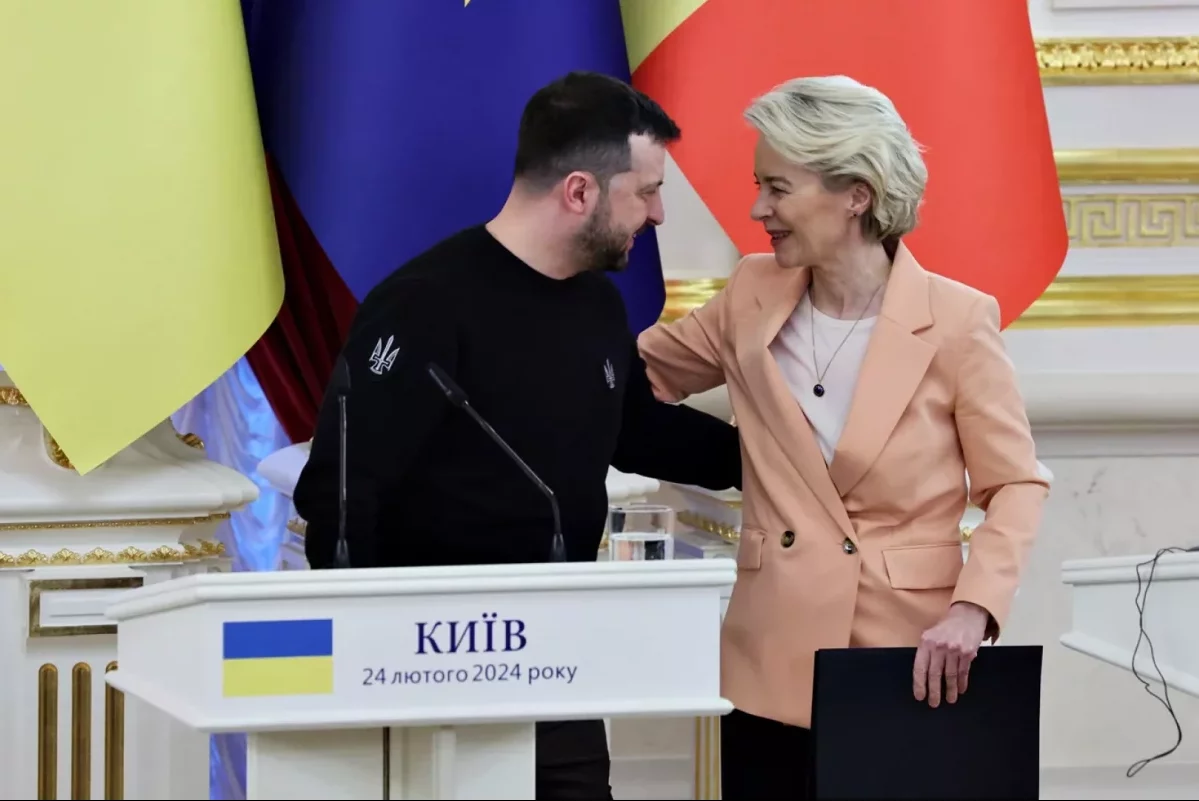In a landmark yet controversial move, the European Union has transferred €1.5 billion in extraordinary revenues generated by frozen Russian assets to the Ukrainian war effort and reconstruction project.
This first payment, which represents a portion of the proceeds generated by interest gained on immobilised Russian assets over the last year and a half, was made on 26th July following an agreement with the Euroclear Belgium central securities depository.
According to a statement made by the EU, “90% of the financial contribution from the extraordinary revenues will go to the European Peace Facility (EPF) and 10% will go to the Ukraine Facility to support respectively Ukraine’s military and reconstruction needs… The extraordinary revenues are fully used for the benefit of Ukraine through two Union Instruments, the EPF and the Ukraine Facility. The channelling ensures that the revenues are spent on the strengthening of military capabilities and reconstruction in line with sound financial management rules.”
The action comes on the back of a decision made in May 2024 in which the European Council voted in a favour of adopting “a set of legal acts ensuring that the net profits stemming from unexpected and extraordinary revenues accruing to central securities depositories (CSDs) in the EU, as a result of the implementation of the EU restrictive measures” could be used to provide financial support to the besieged nation of Ukraine’s defence industry capacities and reconstruction.
Following the completion of this first €1.5 billion transfer, Ursula von der Leyen, the president of the European Commission, said, “The EU stands with Ukraine… There is no better symbol or use for the Kremlin’s money than to make Ukraine and all of Europe a safer place to live.”
See more: Monaco joins 100 other nations and international organisations at Ukraine Peace Summit
The decree to use the funds to aid Ukraine has not been universally approved, with Hungary refusing to agree to the terms. A legal loophole has allowed the EU to circumvent the nation, with lawyers arguing that as Hungary abstained from voting on the agreement made by other bloc members in May, it has been therefore excluded from being a part of the decision to make the inaugural payment.
According to Reuters’ Mark R. Ludwikowski, a columnist on international trade, “Although well-intentioned, the West’s plans to confiscate Russian assets to provide reparations or assistance to Ukraine face significant legal challenges. Criminalising transactions involving sanctioned Russian assets reduces their economic value, but does not alter ownership. Customary laws of warfare allow for the confiscation of enemy state property and countermeasures against responsible states. Still, these measures do not apply to either the EU or the other G7 countries, as Russia has not attacked them.”
He continues, “Legally, freezing assets is different from confiscating them. Confiscation requires judicial action, which is impeded by the principle of sovereign equality. Therefore, Russian Central Bank (RCB) assets are protected from legal proceedings in other states unless Russia explicitly waives this immunity. For example, assets blocked under Council Regulation 833/2014 are justified as countermeasures, but cannot be definitively taken under current laws.”
Since the Russia-Ukraine conflict began in early 2022, the EU has imposed wide-reaching sanctions on Russian assets and is believed to have frozen an amount totalling €210 billion.
Monaco Life is produced by real multi-media journalists writing original content. See more in our free newsletter, follow our Podcasts on Spotify, and check us out on Threads, Facebook, Instagram, LinkedIn and Tik Tok.
Photo credit: EU
